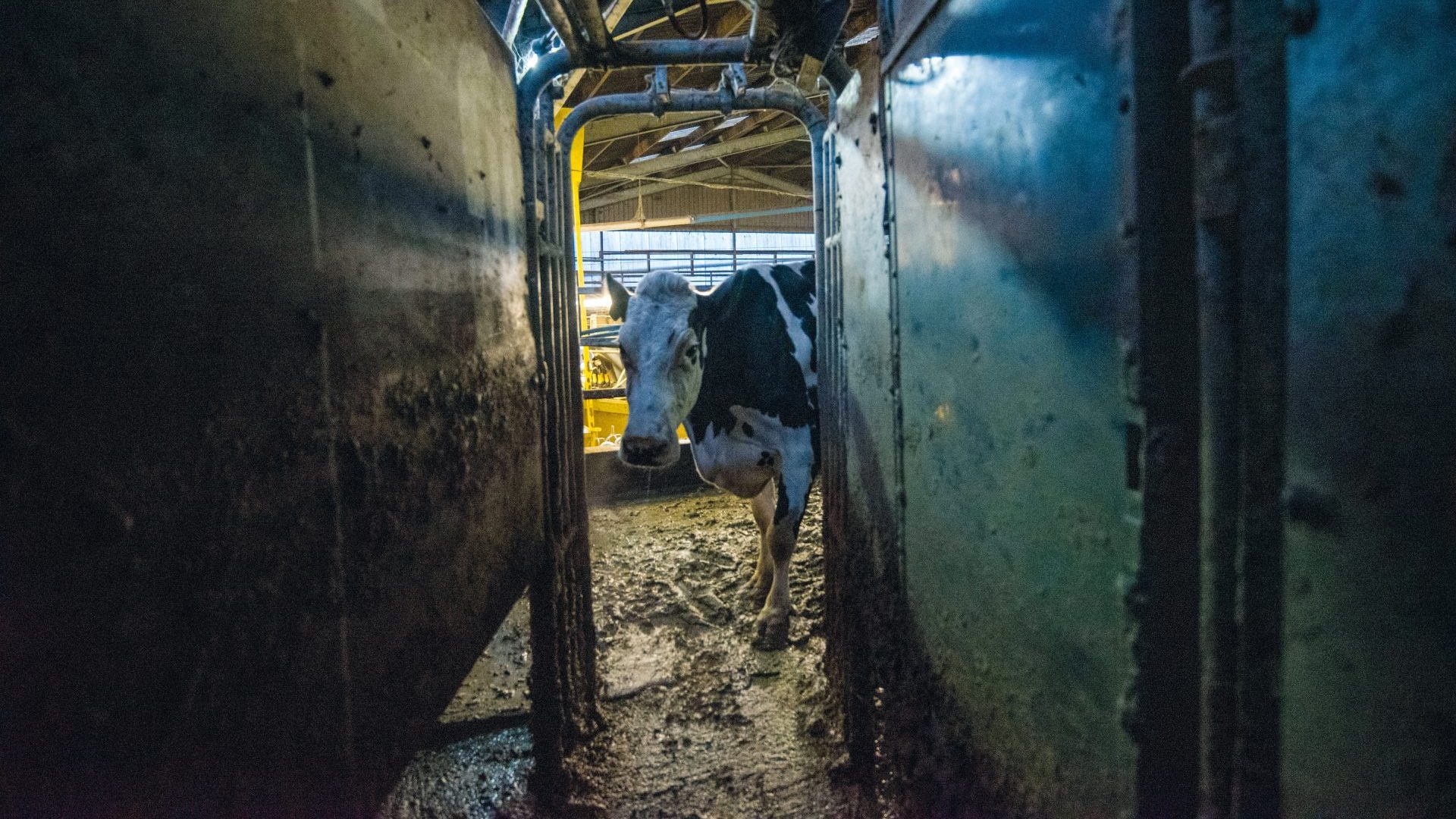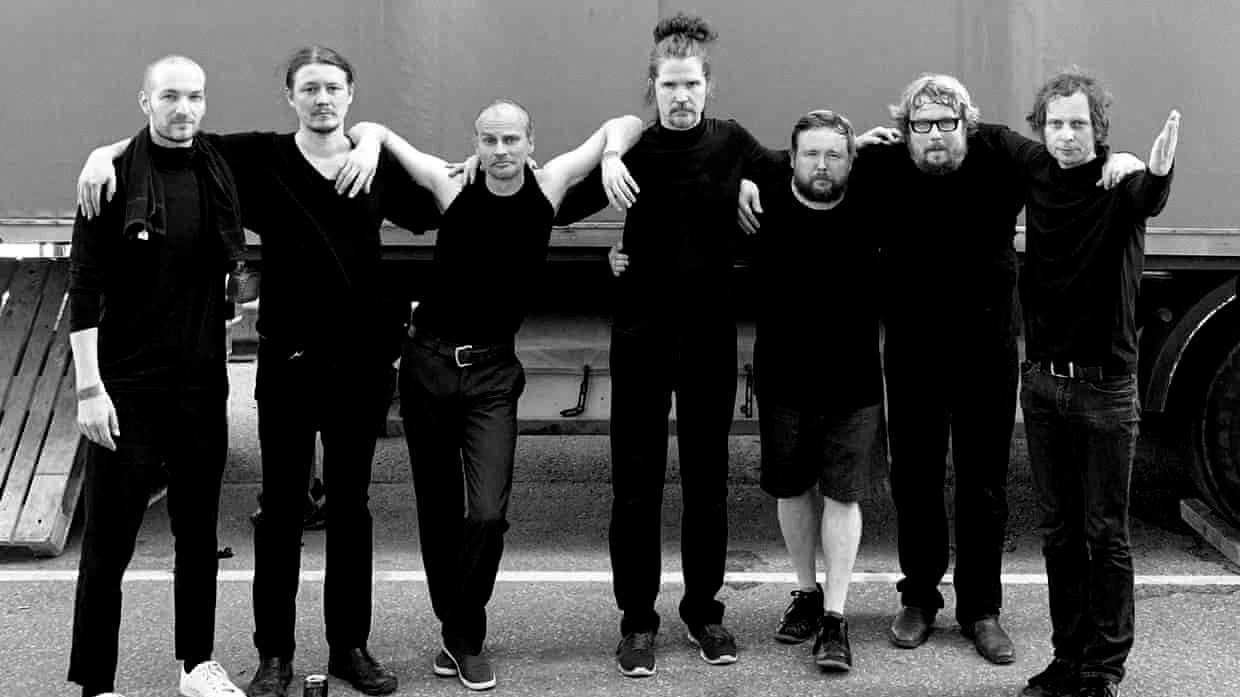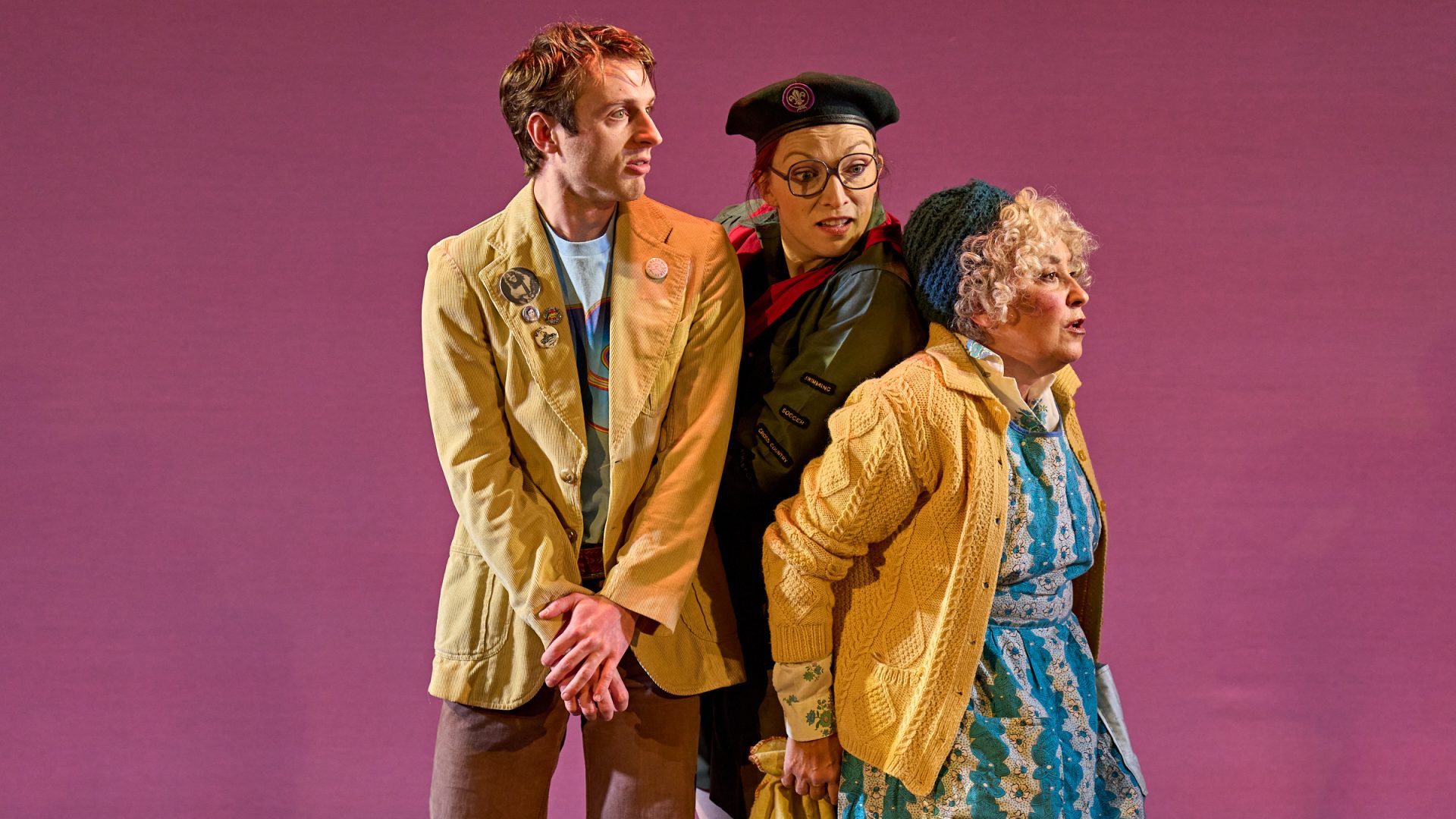If it came up in a quiz, you’d probably struggle to answer: Which British director has won three Jury prizes at the Cannes Film Festival?
Andrea Arnold is the holder of that unique record: for Red Road, Fish Tank and American Honey, and she’s also won an Oscar, for her short film, Wasp, from 2004. For all that cinematic achievement, she’s still just as well-known in the UK for her stint as a 1980s children’s TV presenter, roller-skating around on the popular Saturday morning show No.73.
Fêted in Europe, invited to festivals and on to major juries (last summer, she oversaw the Un Certain Regard section at Cannes), could it be that British audiences don’t know a good thing when they see it?
She admits her films do better in France and she is revered in countries such as Poland, but doesn’t want to think about why that might be, partly because it might hamper the thought processes around how she makes films, and partly because it hurts, a bit. Tentatively, she does venture the idea that: “Maybe my films show a side of Britain that British people don’t want to see or face up to.”
That may be true of the mysteriously violent surveillance drama Red Road, set on a Glasgow estate, and of the social realist, Essex-set grit of Fish Tank, with Katie Jarvis dreaming of being a street dancer.
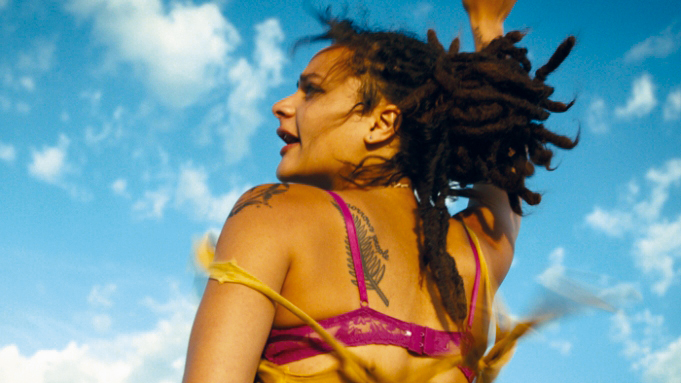
Arnold’s naturalistic style confronts everyday truths, and deals with untamed characters who refuse to conform or perform in the way that more conventional stories might prefer, but who are also trapped by conventions and systems they’re desperately trying to break.
If that’s been a problem for audiences, one wonders what they’ll make of her first documentary, Cow.
Arnold’s heroine this time is Luma, a magnificent dairy cow on a Kent farm, whose daily life we follow in intimate detail until we can practically read her
thoughts as she’s lead through the industrialised processes of modern cow life, from giving birth, to milking, to moments of pure, natural peace, grazing out under the stars.
There’s something undeniably transcendent about watching Luma. The ambient sounds of her farm life seep into us: the whirr of pumping
machinery, the clang of metal gates, the unforgiving thud of hoof on concrete floor, the moo of her herd and the bleat of her calves.
It’s all a process, a routine, a business. Is Luma treated gently, humanely? In short: Is it a good life? That’s the question the film ultimately forces us to ask and the answer is distinctly uneasy.
“I wondered, if we watched a cow long enough, would we see something
of her consciousness?” says Arnold. “Do cows feel pain, fear, desire, anger,
affection, loss, frustration, empathy and intention? Are they individuals, as humans are? I didn’t want to get inside her head or anything like that, or
attribute human emotions to her – I just wanted to look, for us to see her and for her to be seen.”
I do ask if Arnold is a vegan. “I never talk about that,” she says. “I want the film to be an invitation to show you something you hadn’t thought about and so I just want people to have their own thoughts, not be coloured by what they’ve heard is my opinion. For me, that’s the whole point of cinema, to leave space for an audience to think, to consider what’s shown but not said.”
But anyone watching will notice the brutality of the life of a dairy cow, how blankly joyless the whole cycle is. One could expand it into a metaphor for our own lives, all hemmed in by systems and restrictions we struggle
against, until we meekly go along with them. Silly cows, the lot of us.
“Well, I don’t know… sometimes a cow is just a cow,” laughs Arnold.
Cow is nothing like, say, Richard Linklater’s eco-satire Fast Food Nation (based on Eric Schlosser’s best-selling book). Cow doesn’t need to make
heavy-handed points because its simple and detached images and rhythms build up an emotional connection between audience and subject. We’re not exactly talking cow-cam here, but we feel we’re suffering along with Luma all the indignities of being prodded, pumped, herded, clipped, impregnated.
“We’ve surely all become disconnected from nature, at least those of us in urban settings,” says Arnold. “We used to live alongside animals and, even if we ate them and hunted them, we grew up with them, sharing the Earth with them.
“Now we grow up with cute pets and we’ve created this idealised, sanitised
vision of them, not just domesticated ones but, you know, that Old MacDonald version of farming. The stories and fluffy images, cows on your
pyjamas, chicken egg cups, cows on milkshake packets, that’s not the reality of modern farming. I’m trying to bring that in gently – there are things you could do that would be way more extreme…”
It is indeed strange how, despite the mechanised life she leads, watching Luma is as calming as it is gripping. The transfixing close-ups of Polish
cinematographer Magda Kowalczyk exert a fascinating spell so when we
see Luma lick her newborn calf so meticulously as to get off almost every
little bit of afterbirth goo, it’s like feeling that tongue on our own skin.
When mother and newborn are quickly separated, we also feel the ache and pain of the deep bellows Luma emits, hearing her daughter’s distant bleats in another shed. You can’t say there isn’t love in these shots. I thought of Damien Hirst’s sculpture Mother and Child (Divided).
With even more daring, Arnold then films ‘sex scenes’, shot with a softer focus as a bull clambers on top of Luma set to the sounds of RnB singer Mabel on the radio.
It’s followed by a more ruminative passage (some of the film’s rare wide shots), featuring our cow grazing at night under starry skies. This isn’t a film without humour or warmth.
Soon enough, though, Luma’s having her hoofs shorn and clipped, clamped up in a huge metal monster of a machine that grabs her and lays her on her side, then dumps her back out again, a brutal interlude that merely signals the start of a finale that has all the tension and clinical precision of Martin Scorsese’s The Irishman.
It’s important to stress that, throughout, the farmhands, who are mostly out of shot, are gentle, loving and professional, full of “good girl” encouragements and patient goading and guiding. And it is partly this human interaction that makes Cow so compelling and unique, a piece of pure cinema, led by images that are also loaded with political meaning about our utter dominion over nature and what we do in order to pour milk on our cornflakes.
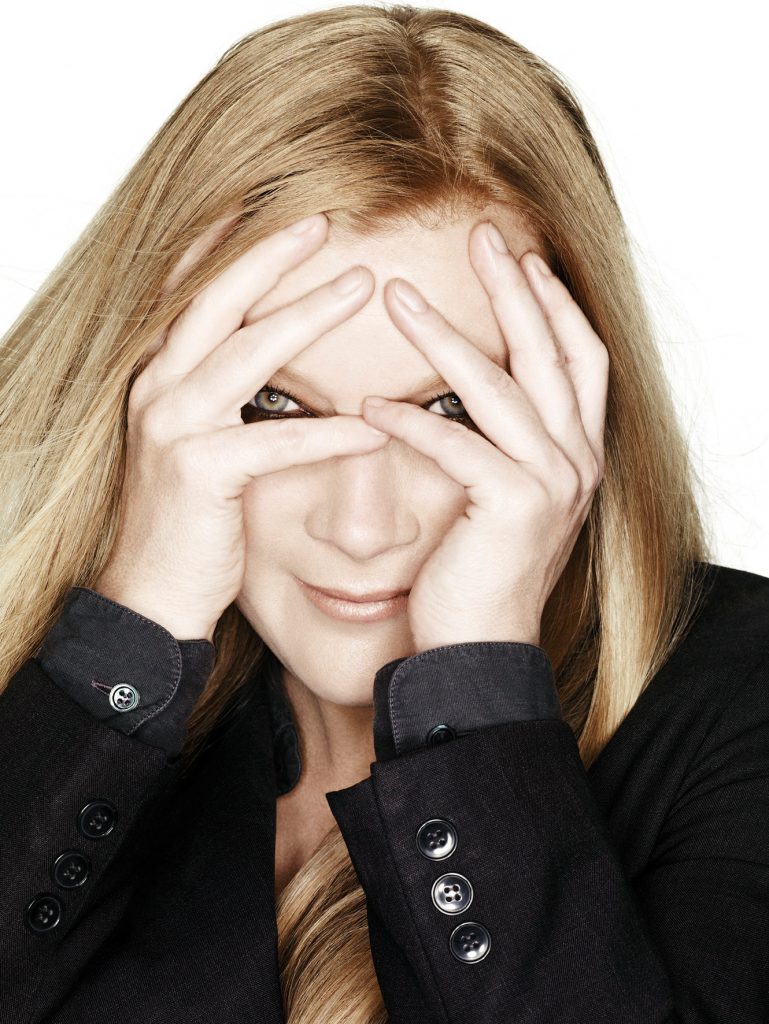
Arnold admits she has been surprised by the emotional response to the film. So far, even amid the restrictions of the pandemic since the film debuted at Cannes last July, she’s taken it to nine countries but the reaction, she says, has been remarkably similar. “Perhaps because there is no language barrier, it’s easy for everyone to foist their own meaning on it,” she says. “It’s just images and visuals, so there’s nothing lost in translation and I’ve been amazed at how audiences get enveloped in the experience.”
Such a stripped-back approach has, ironically, made her realise the power of cinema just as cinemas teeter on the brink. “There was no plan for it to be
like this but bringing out such a pure and simple bit of cinema at this time, after we’ve all been cooped up at home, it’s made me realise just how different the two experiences of watching can be,” she says.
“At home, you can get a glass of wine, or answer the door or go to the
loo – the streaming thing has given control to the viewer. Sitting there
with your remote, putting the cursor where you want it, that’s exactly the sort of control they don’t have in the cinema where they surrender to the
experience completely.”
Perhaps she’s still smarting from the tough time she had making the second
series of Big Little Lies, one of the only times she’s struggled to impose her style and vision on a project.
It’s not something she dwells on. Andrea is an infectious, resilient personality. She’s full of life, often to be found on the dancefloor at her premieres, and she’s got a deep, warm laugh. But for all her openness, she remains a guarded figure who rarely opens up (on the record) about her own life, even if her films always seem to have a deeply personal slant. Hidden in the press notes for Cow, I was intrigued by snippets on her Kent childhood, about how her mum had her at 16, how three siblings followed quickly and how her dad was “rarely around and gone completely by the time I was 10.”
She talks about her housing estate, surrounded by a “wilderness, chalk pits and deserted industrial spaces and woods and motorways. Out of this grew a deep love of insects, birds, animals and plants. Stray estate dogs, the traveller ponies chained by the motorway, the fish and frogs in the water-filled bomb site. I can conjure up these places vividly now. The smells and sounds and colours”.
We’ve seen fragments of all these images before, not only in Wasp and Fish Tank, but also in her prickly re-versioning of Wuthering Heights.
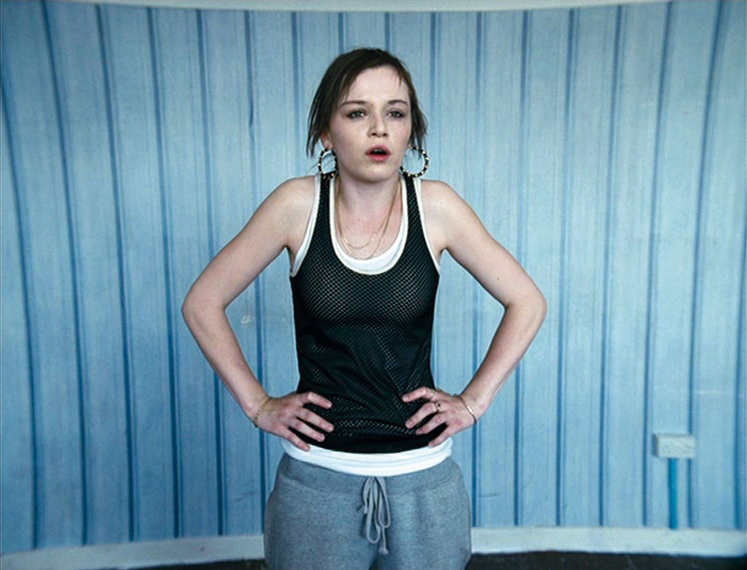
There’s a story in there about letting puppies and dogs roam free and even one about raising a lamb that would live sometimes in the overgrown back
garden, sometimes in the house.
“I had gerbils,” she says, “but didn’t have a cage so they lived in a clothes drawer: jumpers, underwear, gerbils.” She reveals she left home at 18 to seek a life in London and that’s why we saw her on Saturday morning ITV, with Sandi Toksvig – a TV presenting career that she jettisoned after 10 years to study film-making in LA.
She tells me this childhood is all part of her documentary realism. “I want life in my films,” she says. Yes, I wonder, but is it her life?
“I can only make up so much in my head, so when I see the locations and actors and there’s a hedgehog in the road, I’m looking to embrace it. If there’s an insect to shoot, why not? Or if a herd of deer suddenly skip by, I’m
not going to ignore that… what a gift.”
In Cow, the humans are the cutaways, heard in the background and, in many ways, Luma’s story is one of Arnold’s most personal projects.
“I do get very involved, maybe too involved, with my stories,” she admits. “I go to locations, spend lots of time there, I get obsessed with the places. Every film is a massive endeavour for me and I feel a kind of grief when it’s all over and I have to say goodbye.
“My friend teases me, says I’m like a Barbie doll, with outfits for each occasion: Barbie does TV, Barbie does America… she’s sort of right. When I
shot Wuthering Heights, I had an urge to wear dresses and float around the
moors; shooting American Honey, I wore a cowboy hat all the time.”
I don’t ask about her outfits for filming Luma, but she tells me a strangely moving story about the first film she ever saw: Mary Poppins. “It was devastating,” she recalls.
I remark that this is an unusual response to that film. “Not for me,” she replies. “It took me a long time to get over seeing it. I’m not sure I’ve ever recovered. I loved it so much and I was distressed that I couldn’t actually be in the world of the film.
“I cried every day at school, to the point where the dinner ladies asked what was the matter and I told them I wanted to be one of Mary’s children. I would dream about it, and when I woke up, I’d be so disappointed with where I was that I’d try really hard to get back to sleep so that I could be climbing the chimney steps.”
Clearly, that immersive relationship with cinema has never left her, to the point where we now watch her film and identify with the soul of a dairy cow. You don’t get that in telly. That’s something only cinema can do, isn’t it?
“Oh, I dunno,” says Arnold. “But we can keep trying…”
Cow is released in UK cinemas on January 14 and on MUBI on February 11.


